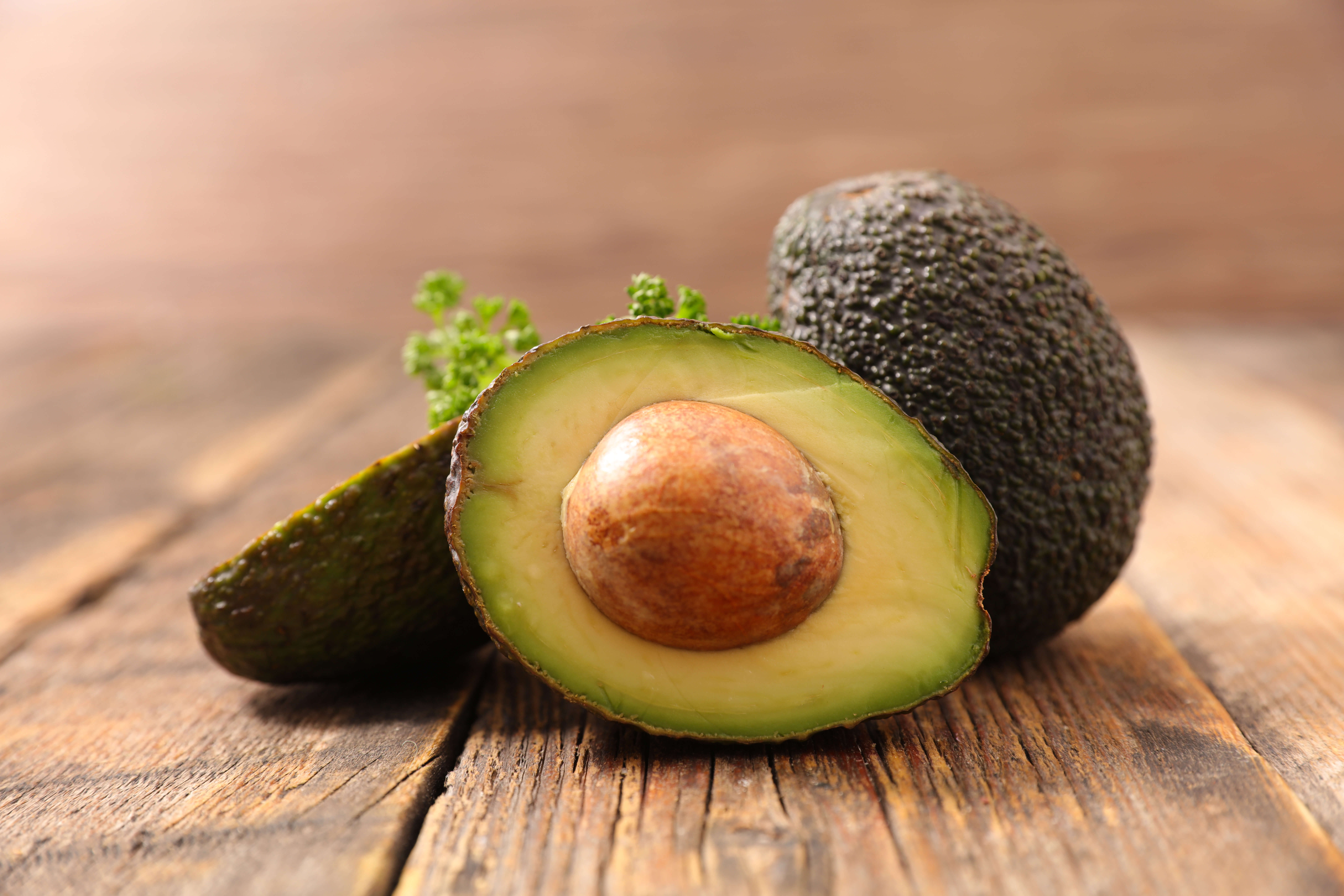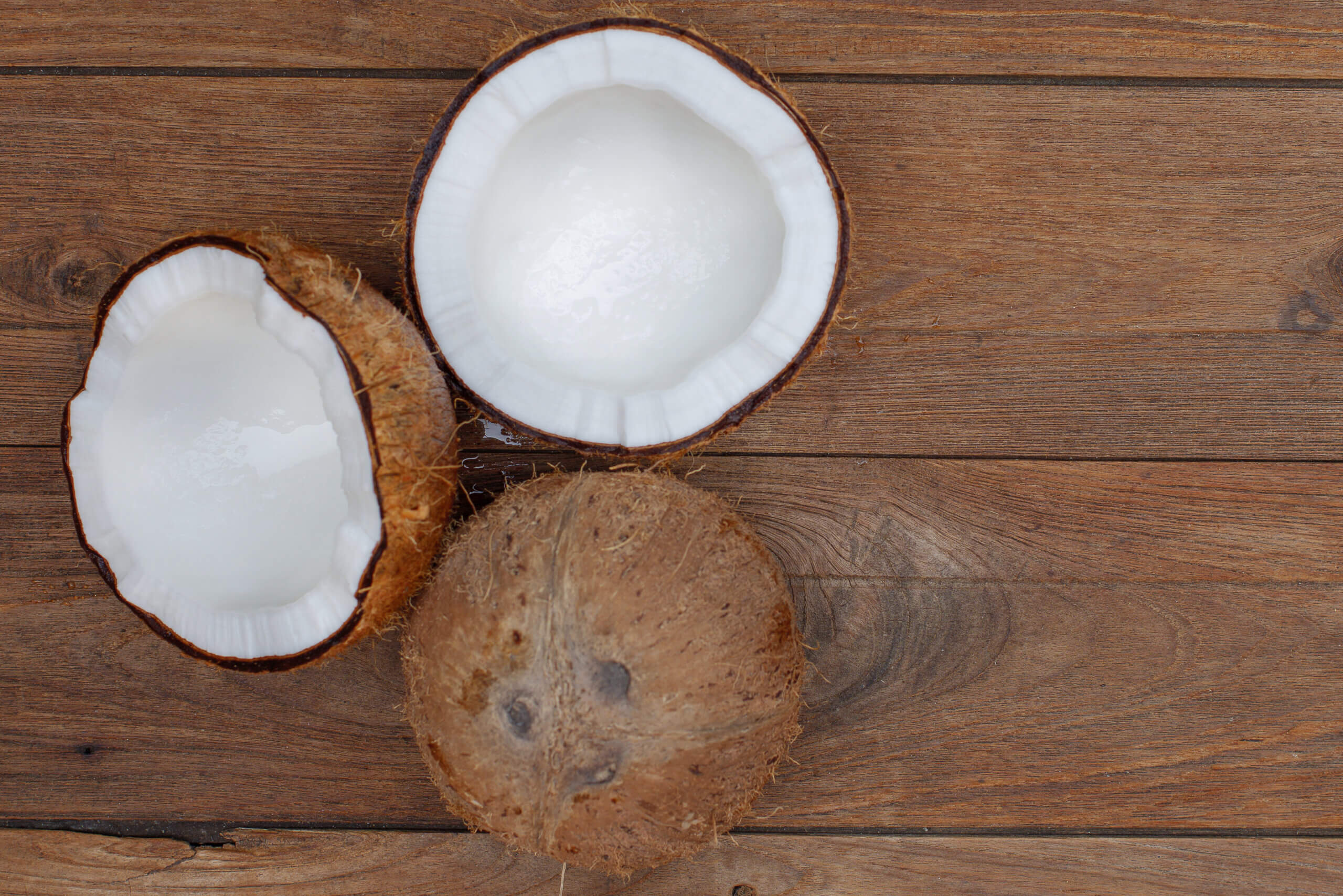In the skincare arena, both avocado oil and coconut oil have strong roles to play. Sourced from nature and brimming with multiple skin-boosting qualities, these oils have certainly earned their moment in the limelight.
From their potential moisturizing to skin-soothing properties, it’s no wonder that beauty gurus have put both of these staples on their skincare shelves.
But, between these skincare contenders, which one outshines the other?
Let’s delve into their unique strengths to find the answer.
Benefits of Avocado Oil
The green flesh of avocados (which is where the oil is extracted from) is a rich source of key nutrients such as omega-3 fatty acids, potassium, lecithin, and vitamins B, C, and E — each with their own remarkable potential for skincare.
To get a better idea of how avocado oil may benefit different skin needs, let’s take a look at its potential effects.
Moisturizes and Nourishes

A high fatty acid content is a major star in avocado oil’s nourishing profile. In fact, research reveals that the skin’s natural fatty acids may even be partially replenished by incorporating natural plant oils, such as avocado oil, into skincare routines. This gives avocado oil an ability to help nourish skin and makes it a great choice for skin types that tend towards the dry side.
Avocado oil also acts as both an emollient and occlusive, meaning it helps your skin to retain moisture that is already there, and also smooths out flakiness and a rough-looking texture. In spite of this, it doesn’t leave an oily residue behind, so there’s a low likelihood it will cause acne breakouts!
Potentially Boosts Elasticity
Did you know that avocado shows potential for enhancing your skin’s firmness and elasticity?
In fact, a recent study showed that eating just a single avocado daily demonstrated promising results for improving skin elasticity in women. Specifically, after eight weeks, the participants noticed increased firmness and elasticity in their facial skin. This suggests a possible link between putting a little more avocado into your diet and reaping an anti-aging benefit for your skin.
Of course, this study did explore eating avocados rather than applying the oil. However, it’s plausible that nutrient-rich avocado oil might have similar benefits when applied topically, especially since some animal studies have shown that it may boost collagen synthesis— which is also key for protecting your skin’s elasticity. This potential is further supported by the fact that avocado oil is rich in carotenoids and vitamin E — nutrients known for their anti-aging skin benefits.
Combats Irritation and Inflammation
Due to an ability to stimulate collagen synthesis, avocado oil has shown the potential to speed up the wound repair process. The antioxidants in avocado — such as beta carotene, vitamin E, and other essential fatty acids — may also soothe sunburns, while its anti-inflammatory effects could help reduce redness and inflammation related to acne and other skin issues.
But remember, when trying a new ingredient, it’s important to apply a small amount at first to ensure it doesn’t irritate your skin. To conduct a patch test, simply put a small amount of avocado oil on your upper arm or thigh and monitor for 24 hours to see your skin’s response.
Benefits of Coconut Oil
Coconut oil comes from the kernel or meat of mature coconuts and brings with it a host of impressive skincare benefits including:
Enhances Skin’s Moisture Retention and Smoothness
Coconut oil’s moisture-locking properties are particularly promising if you’re grappling with dry skin. In fact, the oil’s fatty acids provide it with rich, hydrating nourishment that may make a noticeable difference to skin’s supple appearance. It acts as an occlusive skincare ingredient, forming a barrier that helps prevent water loss and locks in hydration, especially when used with other moisturizing ingredients like glycerin.
Now that’s what we call a one-two punch!
May Help Protect Against Damage & Fights Free Radicals

Coconut oil contains lauric acid and polyphenols — potent antioxidants that could help protect your skin from free radical damage, caused by pollution, UV radiation, and other environmental stressors. Lauric acid also helps promote cell repair and rejuvenation.
Now, coconut oil isn’t quite as strong in antioxidants as some other skincare ingredients (particularly ones with potent vitamin C), but it still offers your skin some protective properties.
Combats Inflammation & Supports Sensitive Skin
Coconut oil possesses anti-inflammatory properties that primarily come from its fatty acid and antioxidant content. Virgin coconut oil, in particular, has been shown to calm the inflammatory response in skin cells.
It’s also worth noting that this same study found coconut oil to be a “non-skin irritant”. This suggests that topical virgin coconut oil could be quite beneficial in supporting sensitive skin.
Soothing for Various Skin Issues
Finally, coconut oil displays substantial potential for calming certain skin issues, including atopic dermatitis. This is mainly due to its moisturizing properties coupled with its demonstrated antibacterial action against Staphylococcus aureus, a bacteria known to exacerbate skin issues associated with eczema as well as acne.
Such a wide-range of applications make it a promising option for working with a range of sensitive skin issues.
Coconut Oil vs Avocado Oil for Skin: Is There A Winner?
There’s not really a clear winner — it all depends on your individual skin type and overall skincare goals.
For example, if improving overall skin moisture without clogging your pores is your priority, avocado oil might be your oil of choice.
On the other hand, coconut oil’s more intense hydrating and nourishing properties are especially helpful for very dry, sensitive, or mature skin. It also offers potential free-radical-fighting power to help keep your skin looking youthful.
Depending on your goals and specific needs, you might want to experiment with both and find which better suits your preferences!
Make Coconut Oil Work Even Better for Your Skin
As stellar as coconut oil is on its own, its potential skyrockets when blended with other natural ingredients, particularly powerful antioxidants.
If you want to maximize its nourishing benefits for your skin AND fight signs of aging at the same time, look into the Age-Defying Dream Cream from Purity Woods.
It contains not only organic coconut oil, but also other nourishing botanicals as well as powerful antioxidant ingredients, like astaxanthin and collagen-boosting vitamin C from camu camu.
This 100% USDA Certified Organic formula quickly goes to work to fade the appearance of wrinkles, dark spots, saggy-looking skin, etc. and is suitable for all skin types.



